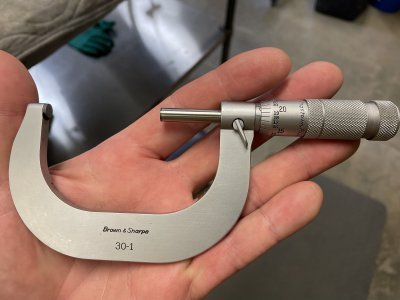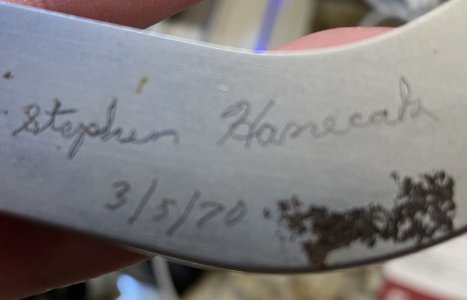Here I acknowledge the sentiments by
@projectnut ,
@rwdenney , and
@motormech1 .
I too have a dislike of batteries. Actually, I think that just about anything that primarily depends on batteries has a downside, be it a micrometer, or an electric car. Batteries just suck!. If there were one that could accept it's charge at whatever rate I could fill it with, and keep it for decades more than I have life left, and give it all back without wearing out, then I might change my mind!
I have two 0.001mm (that's 1 micron or 39.4 millionths) digital micrometers only used with gauge blocks and critical stuff. I simply leave them stored with the batteries out, because I don't use them that often. Everything else is an assortment of "older" mechanical micrometers that do the job just fine, even though I need the headband magnifier.
I am much attracted to the "digital mechanical" types. These are also without batteries, but have a number output not unlike a miniature version of a car mileage odometer.
The types with batteries vary a lot in how often you need to replace. Mitutoyo, and those from OriginCal have a much smaller quiescent current. You had better remember to switch the OriginCal off, because it won't do so by itself.
The lifetimes are somewhat shorter than the battery shelf life, but they seem to work for useful periods. Any of these things, without a hard OFF switch, are intended to be shut down as much as possible, polling the ON switch every few seconds, then going to sleep again. The nano-amps they use by being "always on" in this fashion can vary, and might even be micro-amps in some of them. Unless this little standby current competes with the shelf life, the gadget is going to become a battery replacement annoyance!
I now tend toward stuff without batteries, or I seek to have a hard OFF switch.




